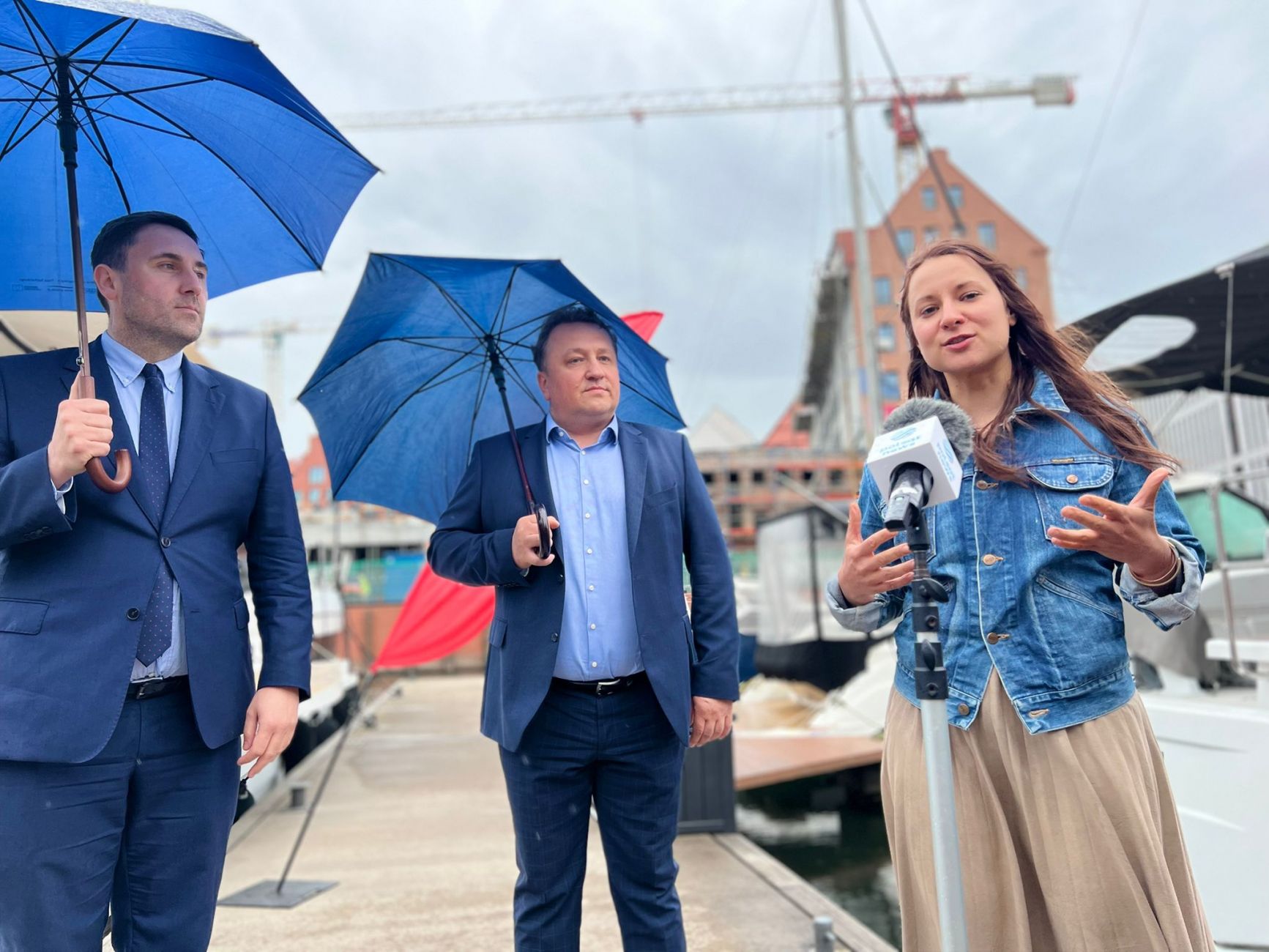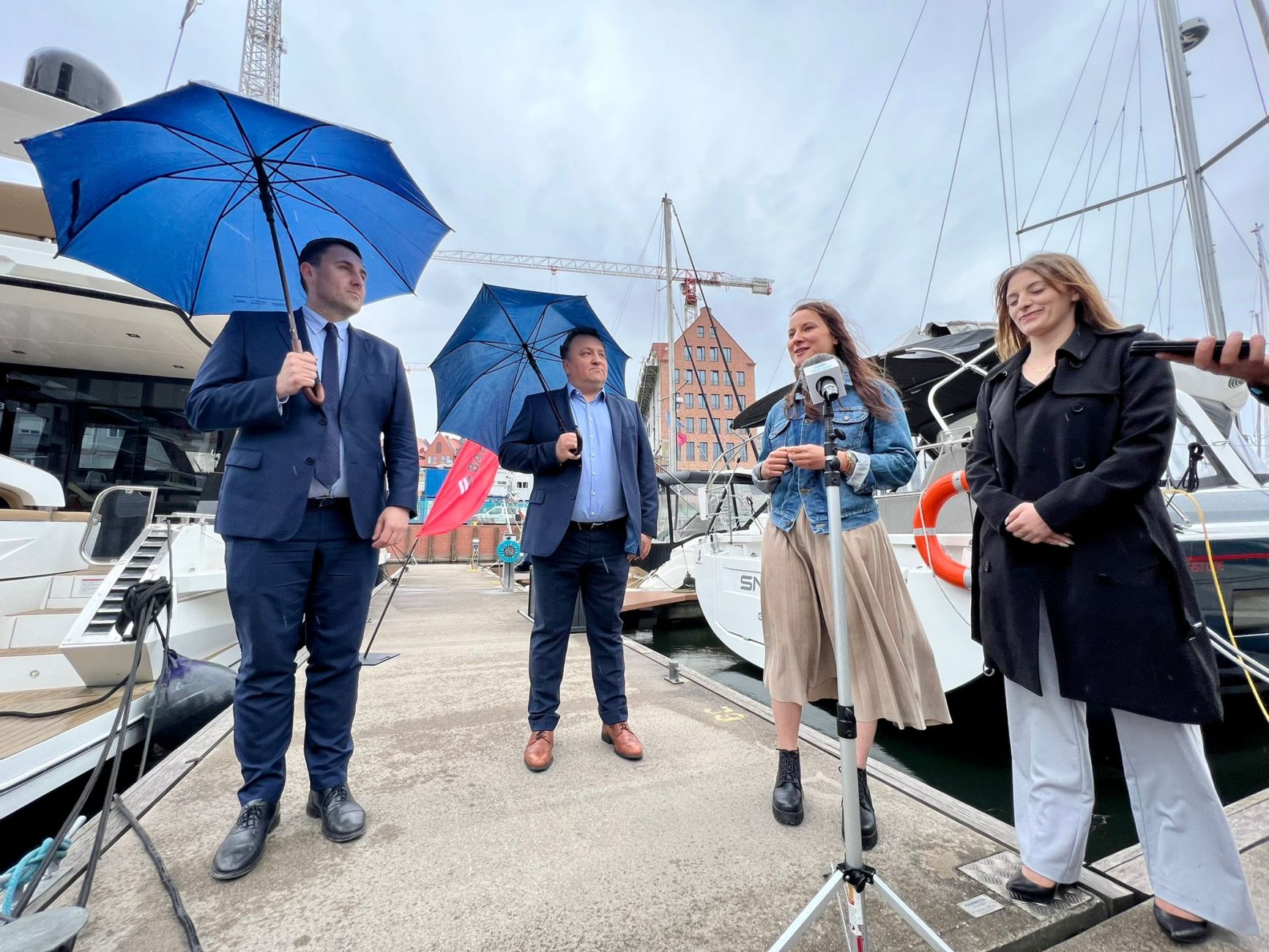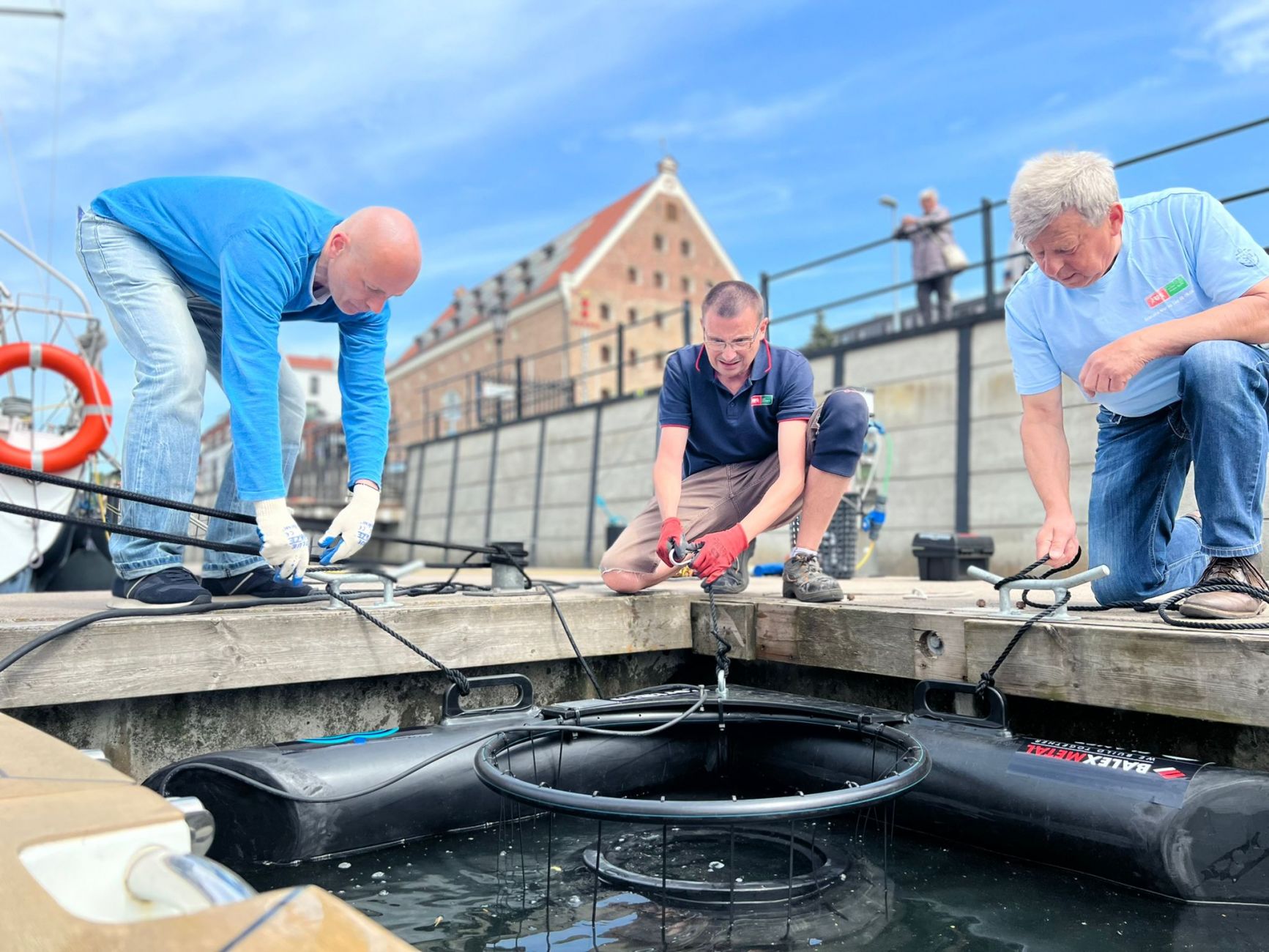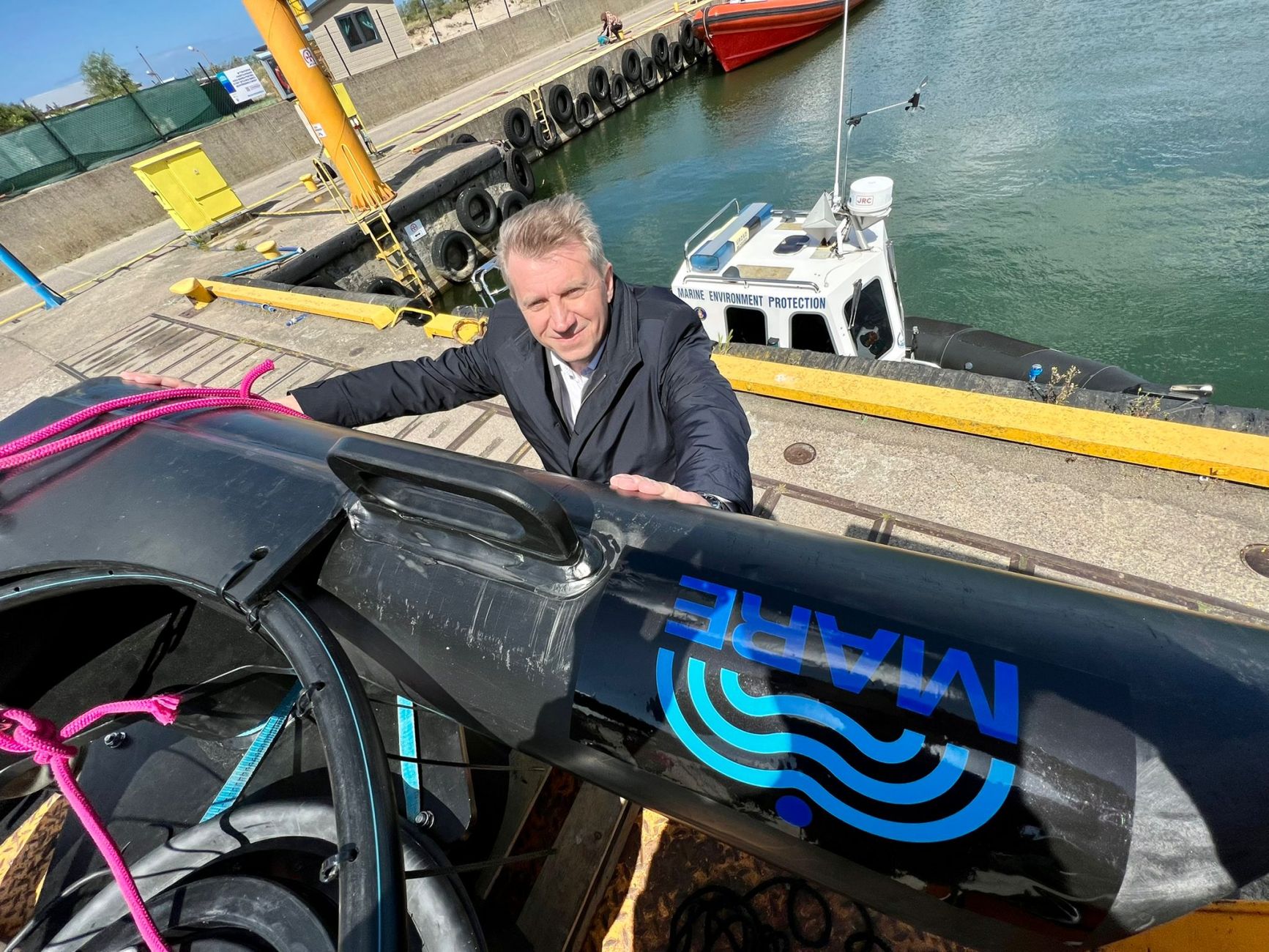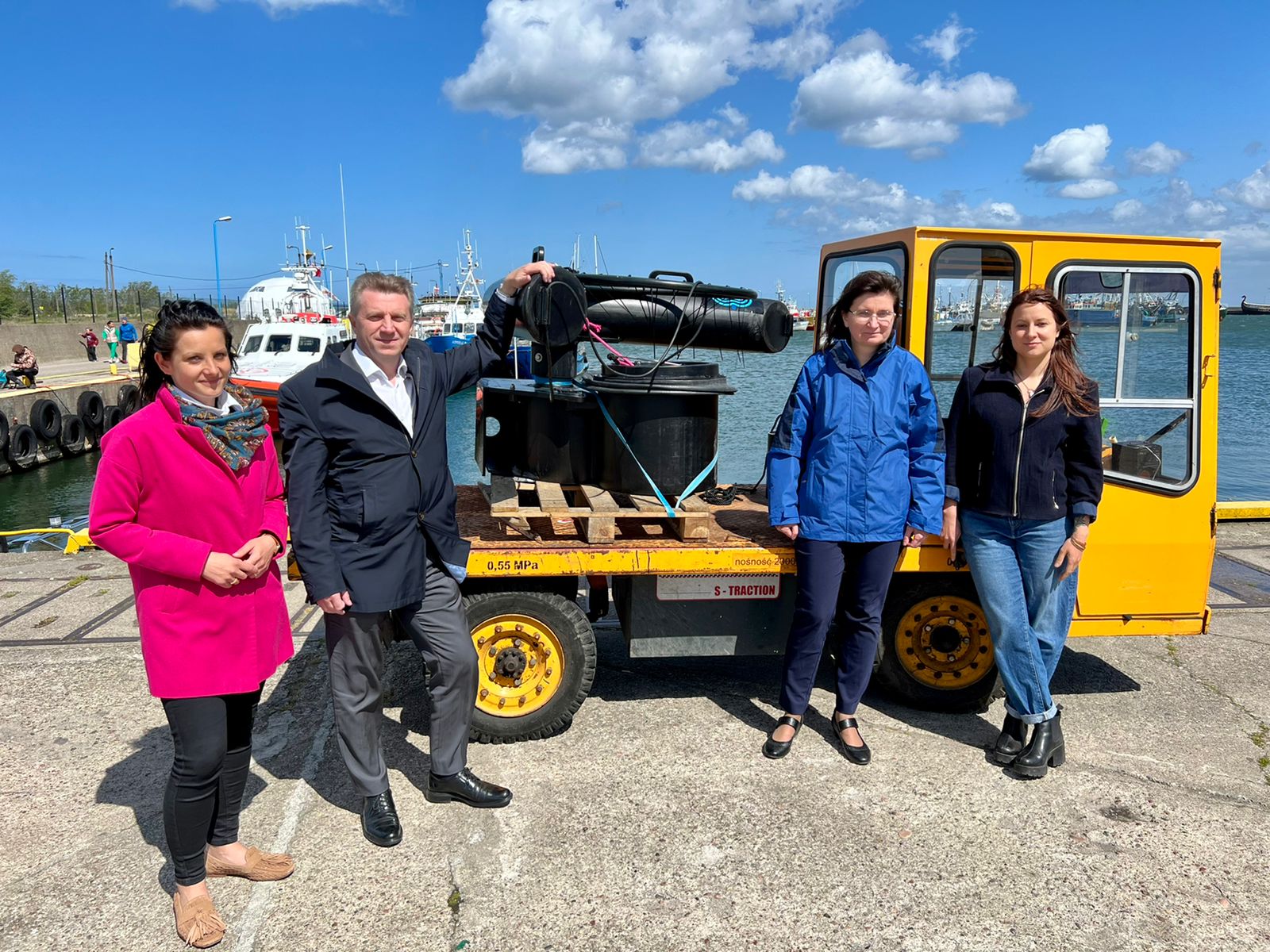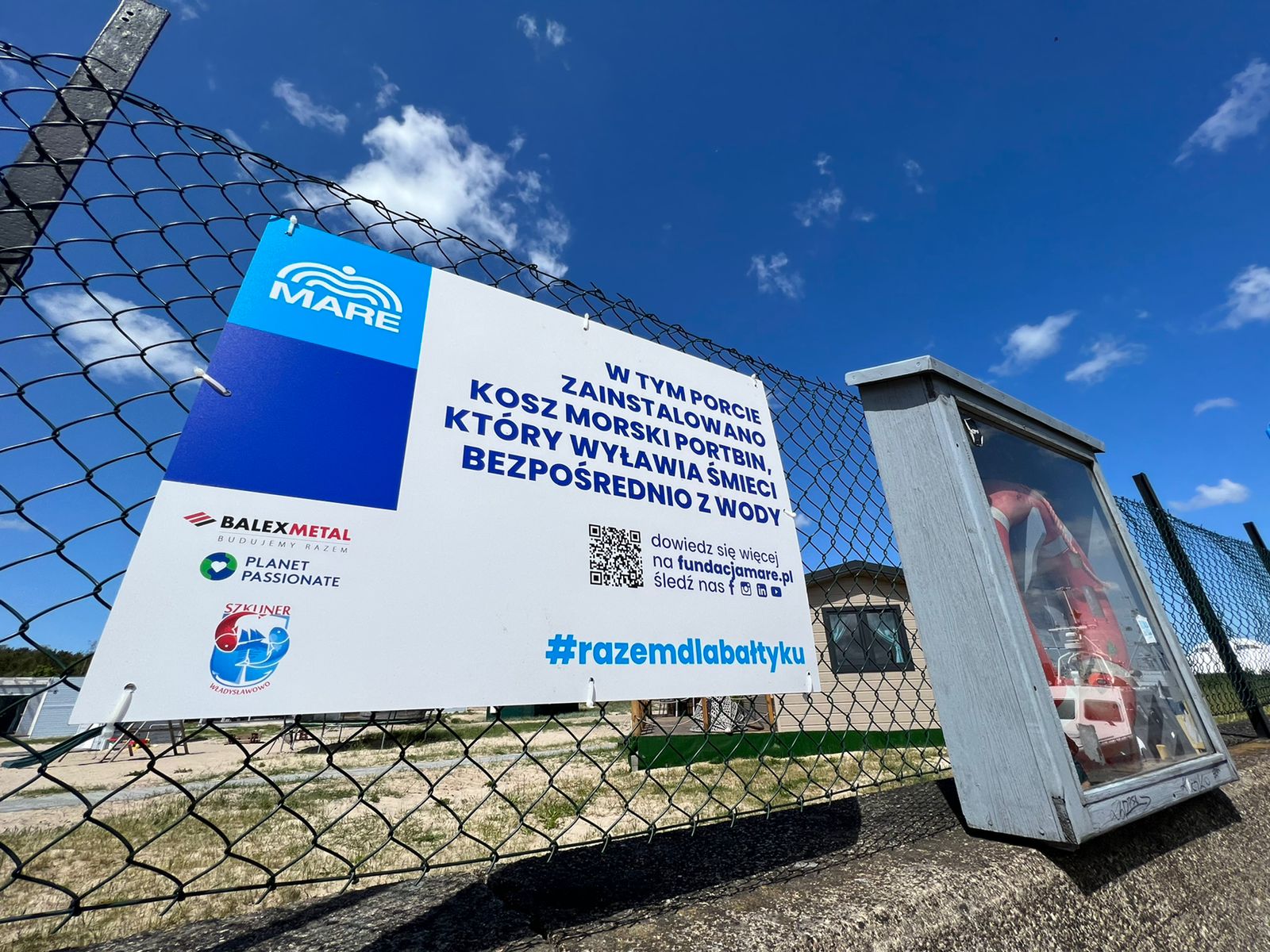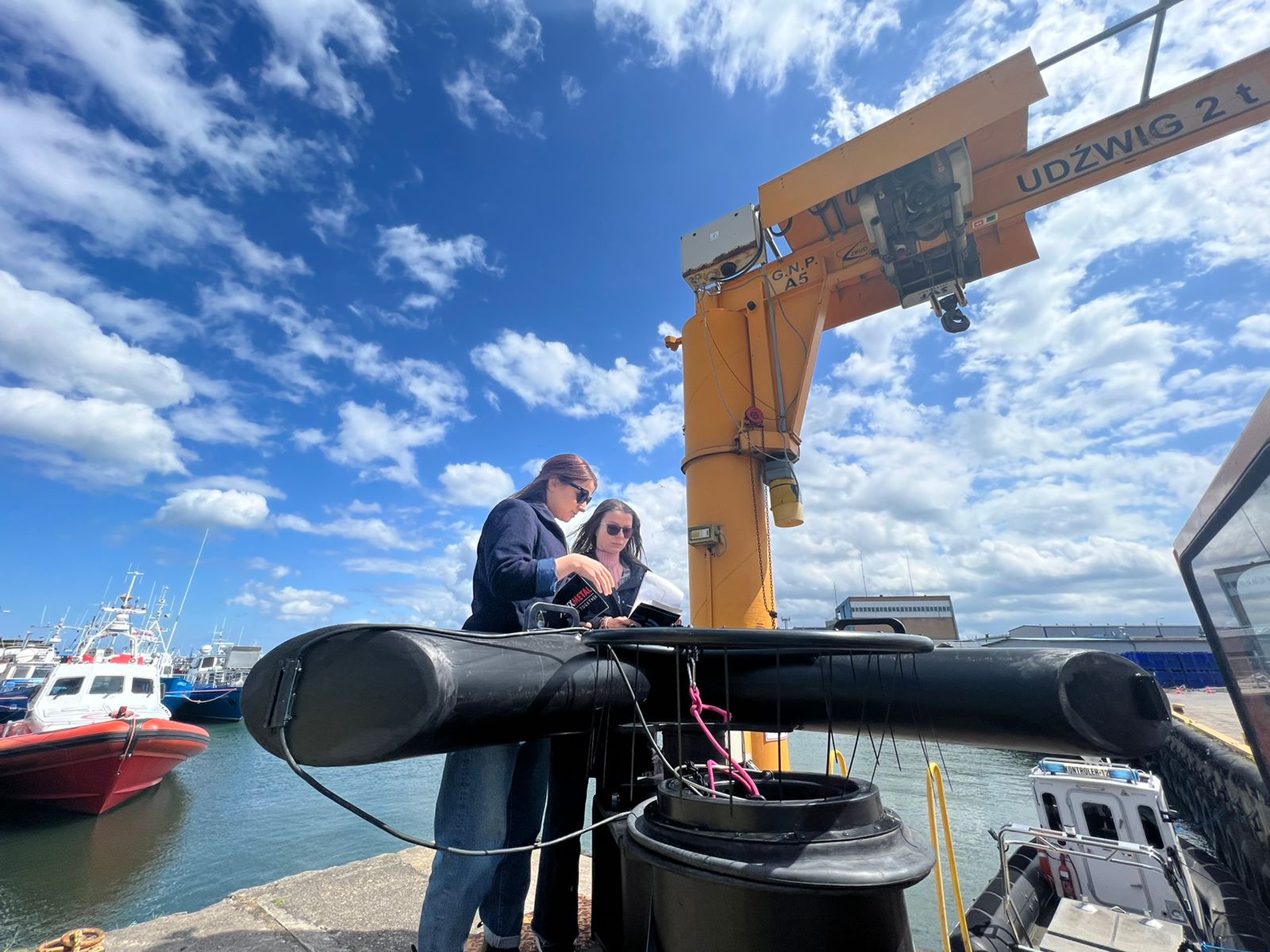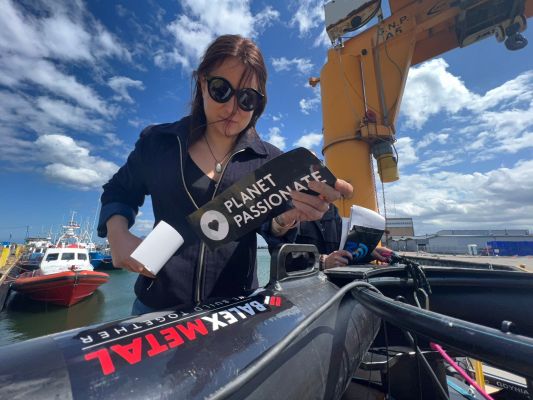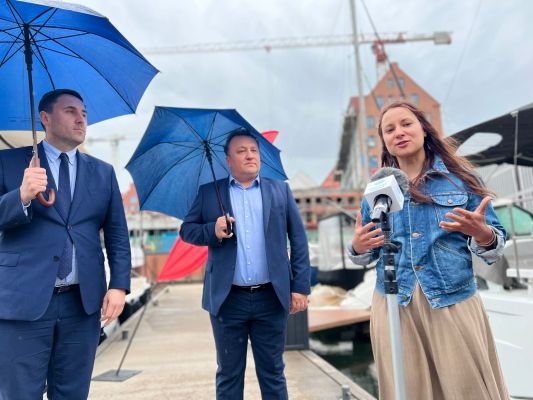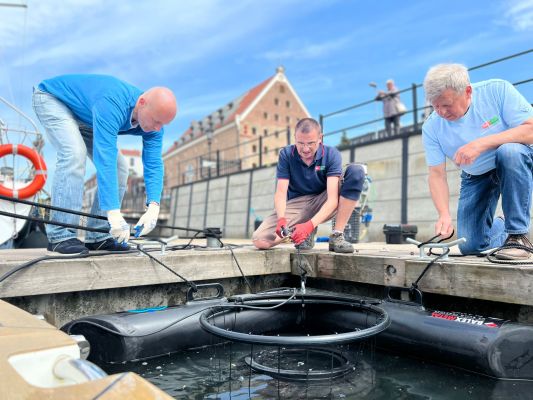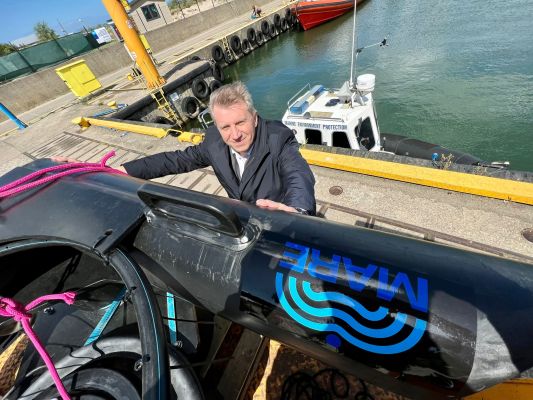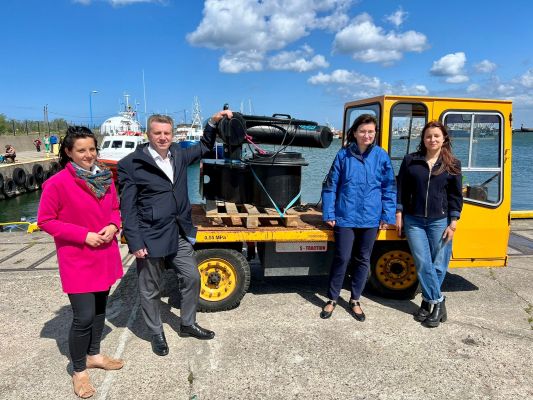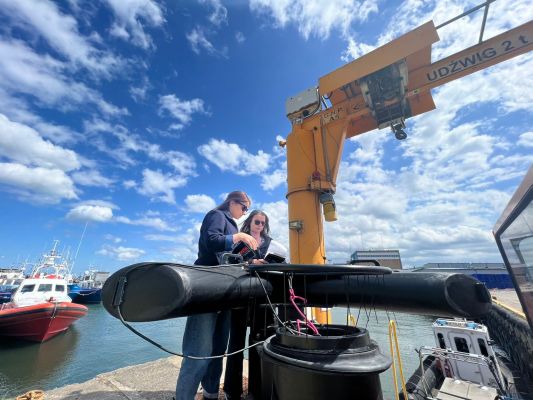Another two Portbins have just made their way to the Baltic ports and will from now on clean the water from plastics.
Plastics is the silent killer of marine ecosystems. The problem of plastic pollution has a global dimension and is also present in the Baltic Sea. According to HELCOM approximately 70% of waste in the Baltic is composed of plastics. The largest part are disposable plastics – that is, all kinds of packaging for food and drink, as well as cigarette butts. To mitigate the problem, the MARE Foundation installs sea bins in Baltic marinas and ports. Each bin can collect up to 1,400 kg of waste from water per year. Thanks to the cooperation with BALEX Metal two Portbins have just been installed in the Gdańsk marina and port of Władysławowo. These are the 6th and 7th bins installed by the MARE Foundation in the Baltic.
fot. Michał Rułka
Mass production of plastics has been growing since the 1950s. Their popularity results from low production costs and wide application. So wide that plastic accompanies people everywhere, in almost every sphere of their lives. Its resistance to degradation, inadequate waste management and wide use as a single-use material have resulted in an increasing amount of plastic entering the environment and in particular marine ecosystems. Carelessness in the use of, especially, disposable plastic results in an increasingly large footprint to the planet.
Today we know that plastics does not decompose in the environment, they break into smaller and smaller particles called microplastics, and then nanoplastics. It is not possible to collect such small particles and therefore they stay in the environment for ever and enter the marine food web. They are taken for food and poison the marine organisms, and impair the feeling of hunger, leading ultimately to their death. The sea bins permit to remove a maximum amount of plastic waste from the Baltic before they turn into microplastics and pollute the environment, posing huge risk to animals and humans.
The impact of plastics on the ecosystem, as well as on the heath of animals and humans is currently the subject of many studies around the world. In recent years, there has been more and more discussion on the potential impact of microplastics on the environment and ecosystems, as well as human health. Today we know that by consuming certain products we are exposed to the intake of a considerable amount of microplastics into our digestive system. Microplastics are in the bottled water, beer, salt, seafood, tea bags or in ready-made meals, packed in plastic. An average human consumes at least 50,000 particles of microplastics per year and inhales a similar amount of them.
Microplastics was first detected in human blood in spring 2022. A team of scientists from Vrije Universiteit Amsterdam in the Netherlands, had analysed 22 blood samples from anonymous donors (healthy adults) and found microplastics in 17 of them. Half of these samples contained PET, which is commonly used in beverage bottles, and one-third contained polystyrene used for food packages, whereas one-fourth contained polyethylene, from which plastic bags are made. Some samples contained 2 or 3 types of plastics.
Recent reports indicate that microplastics are also found deep in our lungs. In a study conducted by British researchers at the University of Hull and doctors at Castle Hill Hospital in Cottingham, lung tissue samples were taken from 13 operated patients. Microplastics were found in 11 cases. The most commonly found plastics were polypropylene used, among others, in the production of plastic packaging, and PET, from which the bottles are made.
Plastics and microplastics are a threat not only to the environment, but to the humans, because humans are an integral part of the ecosystem. The future will show the consequences of plastic pollution on our health.
Global consumption of plastics has now exceeded 320 million tonnes per year. Only 9% of the plastic are recycled and that means that huge amounts of plastic end up in landfills, or, worse, directly to the environment – says Olga Sarna, the chair of the MARE Foundation. According to the European Commission, plastic accounts for 4.8 to 12.,7 million tonnes of waste in the seas. Most of this waste will not be removed and will remain in the seas forever. The MARE Foundation undertakes measures aimed at improving the state of the Baltic Sea. For several years, we have been cleaning the Baltic – together with fisheries organisations we collect derelict fishing gears, deposited at the bottom or floating in the water column, the so-called ghost nets, together with divers, we conduct an annual campaign to clean the beaches and the sea, we educate. Thanks to the support of several companies, we install sea bins to remove waste directly from water in marinas and ports. We are very happy with the next two PortBins, which have just started to clean the Baltic - adds Sarna from MARE.
For us the initiative aimed at cleaning the Baltic Sea – says Marek Dzikiewicz, the chair of Balex Metal, the producer of construction materials for the construction and housing industry – is part of ambitious projects, which we implement in the framework of Planet passionate sustainability programme. We started to co-operate with the MARE Foundation and finance the installation of sea bins - Portbin – not only in Gdańsk, but also in Władysławowo. In framework of this co-operation, we would like to go a step further, not only to install the sea bins, but together with the Recycling Plant (also part of the project) and the MARE Foundation undertake the analysis of marine litter, in order to acquire knowledge on the amount of litter collected from the sea and their composition / classification, to determine which elements can be recycled.
__________________________________________________________________________________________________________________________
The MARE Foundation the only non-governmental organisation in Poland focused on the protection of the Baltic ecosystem. The activities are focused on marine litter (including plastics and ghost nets), and management of dangerous shipwrecks (we aim at implementing a wreck management plan in Poland), as well as education of the society.
Balex Metal is the Polish producer, part of the international group Kingspan. For 30 Balex Metal has been successfully delivering materials for the construction industry, housing and agriculture, to dozens of countries. As a socially responsible company, it aims at achieving the goals of the Planet Passionate sustainability programme. www.balex.eu


